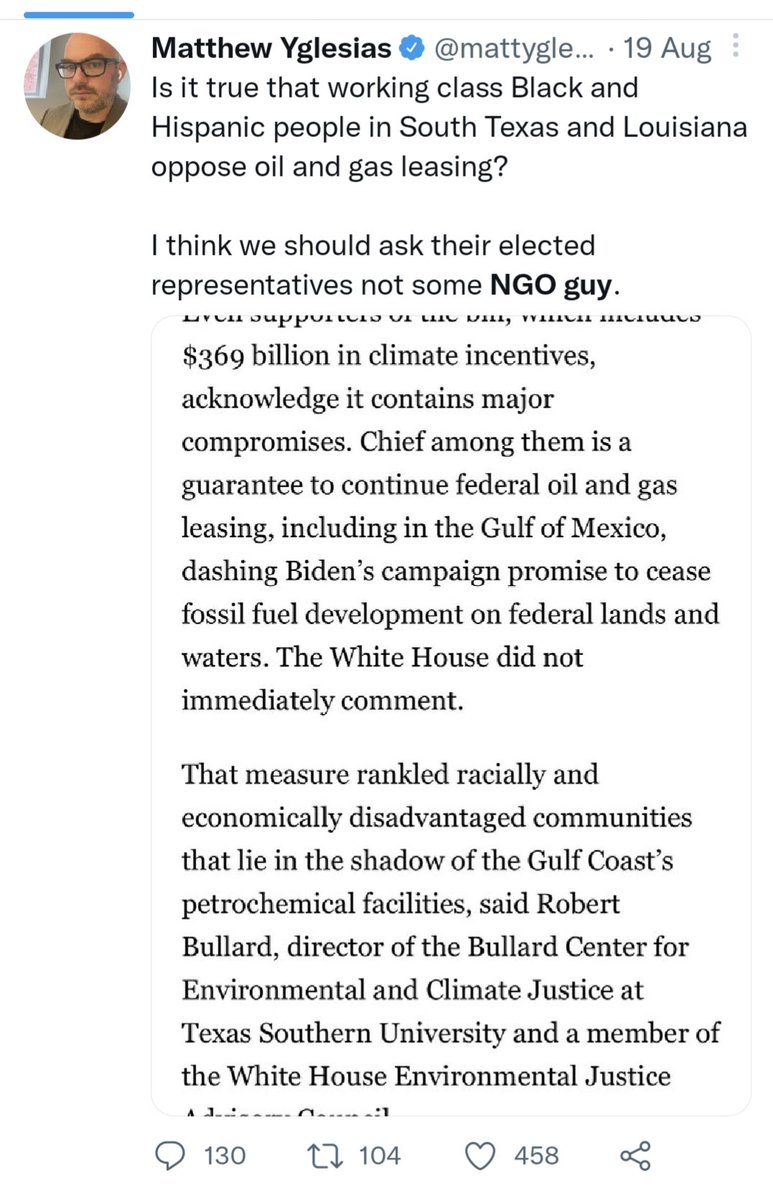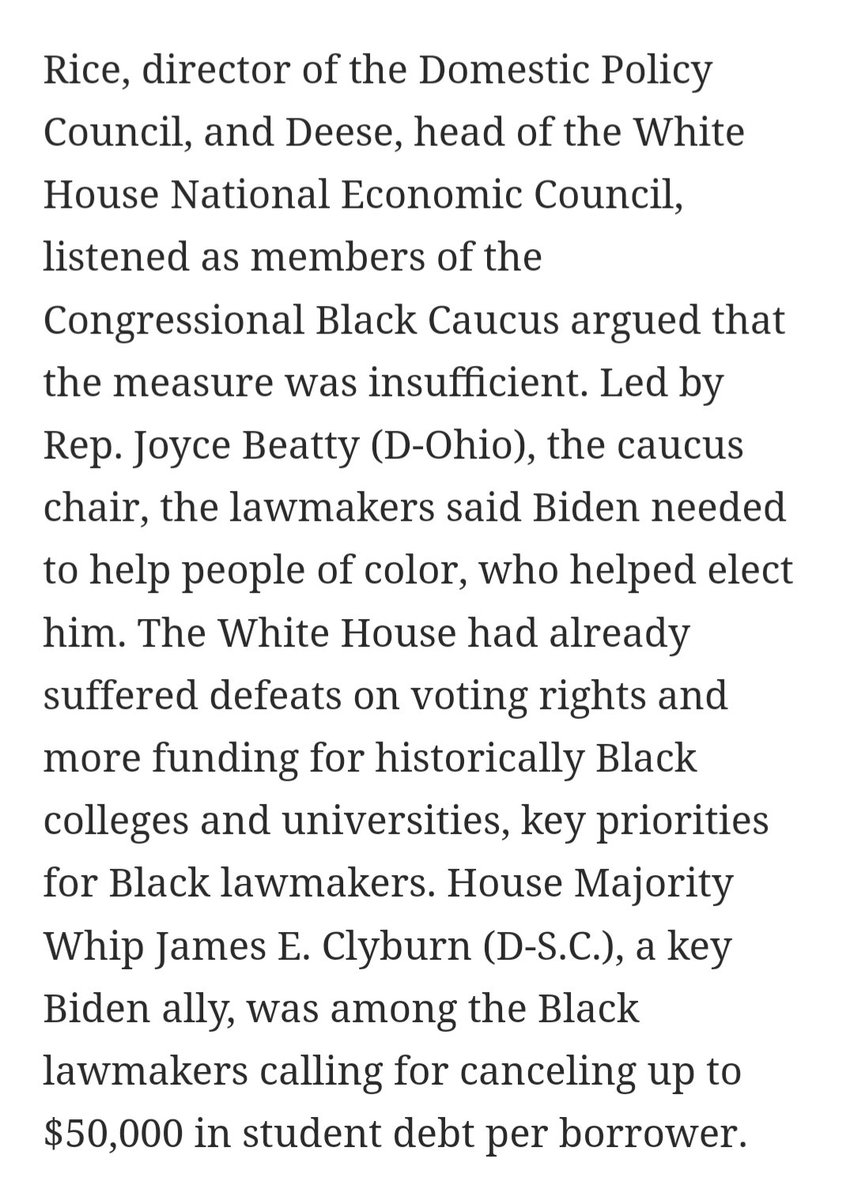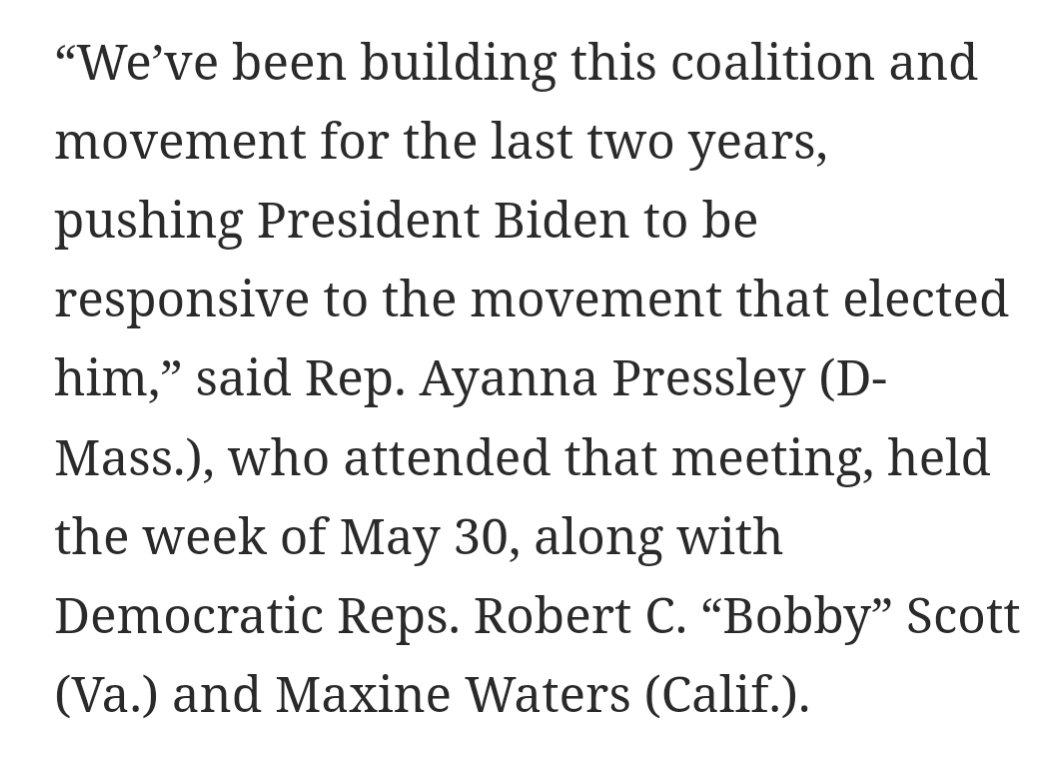
With this nutty news cycle, neoliberal economists may have irreversibly burned the bridge to the only one of the two major US political parties that favors democracy and is against states subjecting half their population into forced labor.
https://twitter.com/arindube/status/1563525258782863360
And for what? We're hearing very public cries of fire over (potentially) interesting findings for an academic seminar, when there is a democracy-ravaging fire around the corner.
https://twitter.com/paulkrugman/status/1563485999615070210
.@paulkrugman called this dynamic the "technocrat problem", whereby some Democratic economists are so "eager to display their independence by criticizing Biden" that they "overdo it — to criticize... policy proposals that... make sense" or are popular.
nytimes.com/2022/02/22/opi…
nytimes.com/2022/02/22/opi…
To appreciate the consequences of the technocrat problem, we need to reach outside of economics. Sociologist @stephaniemudge provides a helpful analytic framework in her recent book on the role of economists in center-left parties.
hup.harvard.edu/catalog.php?is…
hup.harvard.edu/catalog.php?is…
The ability of center-left parties to effectively channel popular demands has played a major role in economic and social stability. 



In this, party experts play an important role, intermediating (to a more effective or less effective extent) between policy agendas and popular demands. 
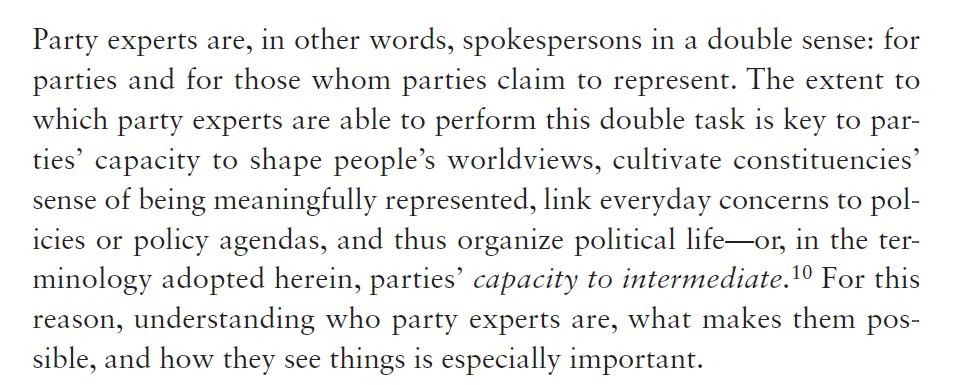
By mid twentieth century, what Mudge describes as "economist theoreticians" came to occupy a central role in the party expertise apparatus, deploying a "Keynesian ethic" that balanced the sometimes competing demands of "scientific advice" and "domestic politics." 
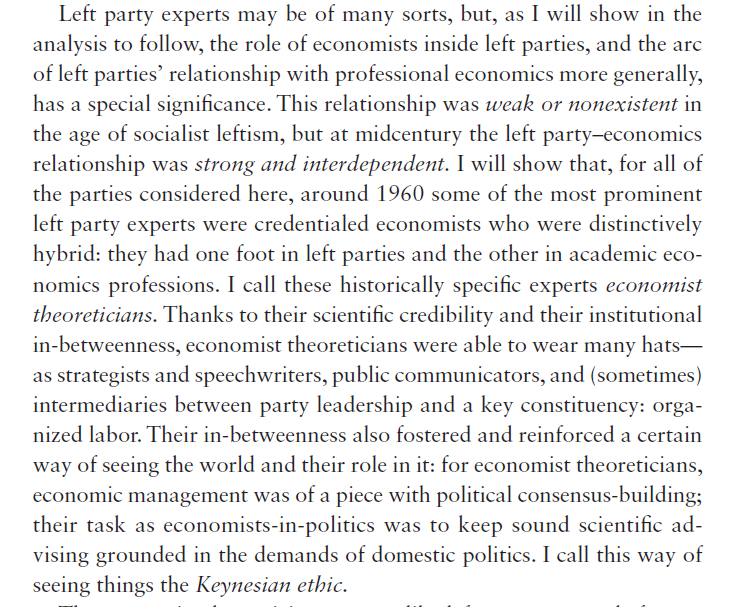
This in-between role - then and now - plays an important role in who gets to occupy the most visible public platforms. The press do not cite just any academic economist at any school, but rather the subset that are dual-hatted for their role (past or present) as party experts.
For this to be stable, these dual-hatted professionals have to perform a balancing act. 1) Give as sharp of advice as possible behind closed doors, but 2) also perform a united front on important representational matters so that re-election is more likely and #1 can happen again.
There are of course limits. There are some policies that would be so ruinous or immoral that professionals should rightly forego voice and loyalty in favor of exit. This requires political sophistication and cleareyed assessment of relative stakes.
hup.harvard.edu/catalog.php?is…
hup.harvard.edu/catalog.php?is…
The balancing act was performed best mid-century, in the pre neoliberal era. But as Mudge's book recounts, this expert-party bargain began to come apart by the 1990s, when we... (open Mudge quote in the image below) 

The new form of party expert - which Mudge calls "the transnational, finance-oriented economist" - deployed a "neoliberal ethic." They did not intermediate between policy and democratic base, as did the Keynesians or party theoreticians before them, but rather spoke for "markets" 

But this arrangement was unstable, because parties in democracies still have to tend to politics. Thus, economic advice and political strategy became increasingly severed. 

Thus, we get a counterintuitive result under neoliberalism: while "economic reasoning" is very powerful, the power of individual (even well placed) economists in policy outcomes is high but not commensurate. See work by @epopppp and @asociologist here.
https://twitter.com/epopppp/status/1549027972786577408
This reasoning's power comes from its "constitutionalization" in domestic and int'l practice, from cost-benefit analysis at OIRA to international investment and trade protections. The state still intervenes, but to protect markets. See @zeithistoriker👇
hup.harvard.edu/catalog.php?is…
hup.harvard.edu/catalog.php?is…
To bring it to the present day, we are seeing a new generation of experts that are attempting to realign economic policymaking with the needs of popular majorities. But as @FeliciaWongRI writes, this new worldview is emergent but not yet crystallized.
rooseveltinstitute.org/publications/t…
rooseveltinstitute.org/publications/t…
This transition creates for a lot of instability between parties and party experts. Indeed, this week may have been the "Dems-in-Disarray"-iest we'll see.
While Mudge's TFE experts yell fire as they exit the building, a new cohort with a new ethic rises.
While Mudge's TFE experts yell fire as they exit the building, a new cohort with a new ethic rises.
https://twitter.com/toddntucker/status/1562507178531254275
Also, there's another side of a dynamic @AmandaMarcotte explores 👇. While it is true Trump depletes the GOP policy game, the press also does them favors when they cite Democratic TFEs rather than getting GOP experts on the record on Biden's policies.
https://twitter.com/AmandaMarcotte/status/1562855852226203648?t=XkdTYnfXrO9b2_lM04x9Dg&s=19
As to the idea that the administration flounts economics because "the heads of the NEC and OMB don’t have degrees in economics", it turns out there's only been three economists in charge of NEC since it's creation, and they've only presided over 20 percent of its existence. 
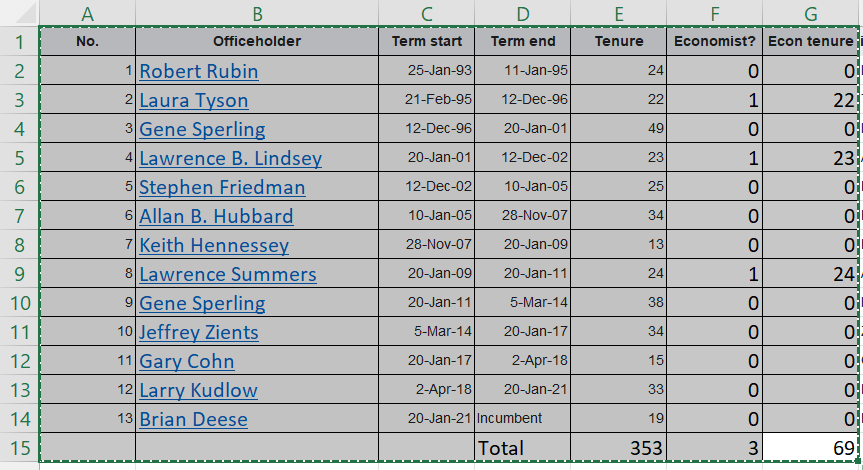
The record is even sparser at OMB. Going back to OMB and its preceding agencies since 1921, the agency has had 43 directors, and only six (14%) were PhD economists. They presided over around 10 years (10%) of an 100 history. 

There's a gender and racial dimension to the critique that Biden is somehow weak on economic advice. OMB is now headed by the first Black woman / 3rd woman in history, Shalanda Young. Yes, she doesn't have an econ degree AND that's never mattered before.
https://twitter.com/toddntucker/status/1375073897805197315
Here was a pretty typical hire for OMB head.
"a professional engineering degree from the Colorado School of Mines, 1961, and a master's degree in industrial administration from Yale University"
presidency.ucsb.edu/documents/appo…
"a professional engineering degree from the Colorado School of Mines, 1961, and a master's degree in industrial administration from Yale University"
presidency.ucsb.edu/documents/appo…
Very few OMB heads even had undergrad degrees in economics. Some didn't even attend college!
nytimes.com/1964/12/03/arc…
nytimes.com/1964/12/03/arc…
Stacked against the norm for prior OMB heads, Young meets or exceeds the bar, with an advanced degree in administration.
Brian Deese at NEC has a law degree, which also meets or exceeds the norm at that office.
Brian Deese at NEC has a law degree, which also meets or exceeds the norm at that office.

This thread by @JooBilly is a granular illustration of the point I highlight from @stephaniemudge: the turn to neoliberalism created challenges to effective governing. (By design??)
https://twitter.com/JooBilly/status/1563567915634675713?t=-XfZ5K5l4r34TjaGyavN6Q&s=19
It provides a toolkit that enables model-driven assessments of the cost of action, but it provides no policy directionality. Indeed, there's a certain professional pride taken by some in being agnostic about whether problems are worth solving or the pathway for doing so.
This is fine for periods of history where the policy objective is to do as little as possible, and where a resource scarcity is manufactured by refusing to adequately tax capital. It is not particularly useful in periods where action is required, as the next decades will be.
Added some democratic theory debate to the Twitter cuz why not
https://twitter.com/toddntucker/status/1563639364949004288?t=pAVlPj3z2I_MPZ-dIzT6jA&s=19
Making the implicit explicit, with regard to severing economics from the art of governing. The inability to even feign a performance of a @stephaniemudge -style balancing act will ultimately hinder economists' access to policymaking.
https://twitter.com/dynarski/status/1563888757555826696?t=07L4Tq5Kpu5ehrHzKsTD0w&s=19
It's very hard to imagine ending the Great Depression or waging World War II with the type of preconditions to action that are now expected.
https://twitter.com/toddntucker/status/1564246712859893761?t=AO2eFRxLrxwLG98XHSumJw&s=19
Luckily, we actually do have a fair amount of data.
https://twitter.com/BharatRamamurti/status/1564047672473952260?t=pCnp-5z0HRfbkBROQpoHqQ&s=19
Lastly, read @epopppp @TheProspect on econ reasoning, debt, and democracy:
"For Democrats to avoid losing control of Congress, votes need to be mobilized for November—in an election with implications not just for social policy but for democracy itself."
prospect.org/economy/studen…
"For Democrats to avoid losing control of Congress, votes need to be mobilized for November—in an election with implications not just for social policy but for democracy itself."
prospect.org/economy/studen…
@threadreaderapp unroll
• • •
Missing some Tweet in this thread? You can try to
force a refresh


